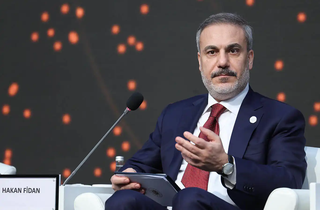Fidan's remarks come amidst intensified efforts to broker peace in Gaza ahead of the Muslim holy month of Ramadan in March.
Fidan's call for unilateral steps in delivering aid highlights a critical moment in the international community's approach to the Palestinian crisis. With escalating humanitarian needs in the region, there is a pressing call to bypass traditional diplomatic channels that may delay the provision of essential supplies. This approach aims to address the immediate needs of the Palestinian people and set a precedent for expedited global responses to humanitarian emergencies.
The timing of these discussions is significant, as stakeholders intensify efforts to achieve a ceasefire in Gaza before Ramadan. The involvement of various mediators in negotiations between Israel and Hamas, alongside international pressures for a peaceful resolution, reflects a concerted push towards de-escalation. Palestinian Authority's expressed hope for a ceasefire by Ramadan further underscores the urgency and shared desire for stability in the region.
The discourse at the ADF, along with Fidan's statements, aligns with broader international calls for immediate and unrestricted aid access to Gaza. The humanitarian crisis, characterized by food insecurity and the dire need for medical supplies, has garnered global attention. Recent incidents, including aid truck storming and airdropping of supplies by the United States, highlight the complexities of aid delivery in conflict zones. These developments underscore the necessity for innovative solutions to ensure prompt delivery of humanitarian aid to those in need.
Fidan's call for unilateral humanitarian aid steps to Palestine before Ramadan signifies a pivotal moment in the international discourse on the Gaza crisis. This approach, stressing the urgency of aid delivery and the collective aim for peace, sets a compelling precedent for future humanitarian interventions.
As the world closely monitors the situation in Gaza, the actions taken in the coming weeks could significantly impact the prospects for peace and the well-being of millions in the region, highlighting the profound impact of diplomacy in addressing global humanitarian challenges. (ILKHA)



 Güncel
Güncel
 Güncel
Güncel
 Dünya
Dünya
 Güncel
Güncel
 Dünya
Dünya
 Güncel
Güncel
 Güncel
Güncel
 Güncel
Güncel
 Güncel
Güncel
 Dünya
Dünya





